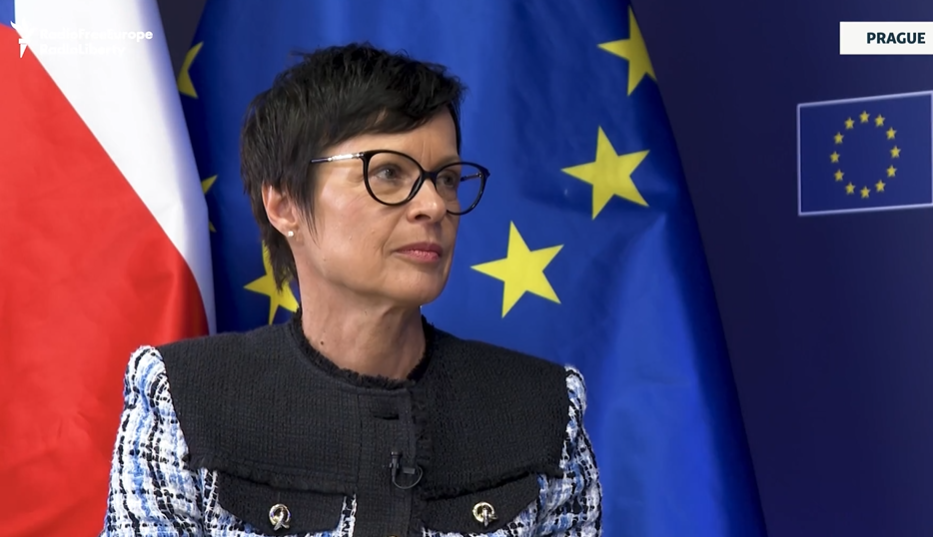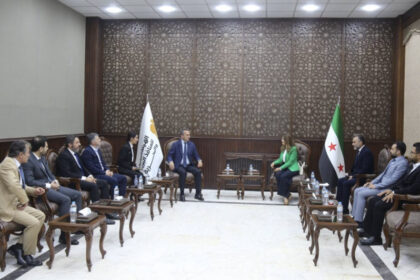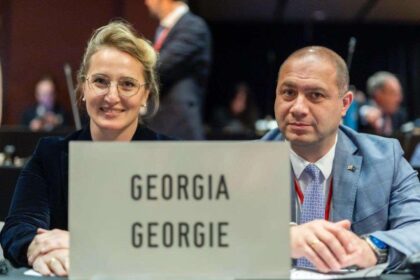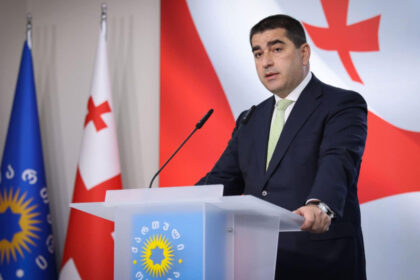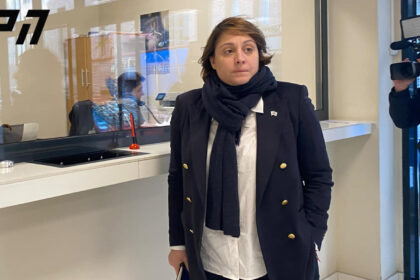**EU Weighs Options for Georgia Amid Democratic Backsliding**
The European Union is considering a range of measures to address Georgia’s ongoing democratic backsliding and deteriorating human rights situation. This includes the possible suspension of visa liberalization, freezing of the country’s EU candidate status, and a review of the Deep and Comprehensive Free Trade Agreement (DCFTA) with the bloc.
European Commissioner for Enlargement Marta Kos spoke about these options in an interview with RFE/RL’s Europe Editor Rikard Jozwiak. She emphasized that the EU is “very careful” about what measures to take on Georgia, cautioning against actions that would disproportionately affect Georgian citizens. The vast majority of Georgians continue to support their country’s pro-European course and have been protesting against the government for 153 consecutive days.
**A Delicate Balance**
Kos noted that while the EU could suspend visa liberalization or freeze Georgia’s EU candidate status, these measures would primarily hurt ordinary Georgian citizens. She stressed that the EU must consider the impact of its actions on the people, rather than just targeting the government.
The Commissioner also mentioned the possibility of reviewing the DCFTA with Georgia and potentially placing the country’s EU candidate status on hold, similar to the EU’s current relationship with Turkey. However, she emphasized that the EU cannot accept losing Georgia as a potential member.
**Sanctions: A Last Resort**
Kos confirmed that sanctions have been explored, but the lack of unanimity among EU member states has prevented joint action. However, some individual member states have imposed sanctions on Georgian officials. This suggests that while the EU is not yet ready to take collective action, there are still options for targeted measures against those responsible for Georgia’s democratic backsliding.
**A Future Dialogue?**
Despite the current freeze in high-level engagement, Kos did not rule out the possibility of future dialogue with the Georgian Dream government. However, she emphasized that any such dialogue must serve a clear purpose and be framed around the goal of bringing Georgia “back to the European way.” She pointed to the EU’s renewed sectoral dialogues with Turkey as a potential model for limited engagement in the future.
Kos suggested that any potential dialogue would likely begin at lower diplomatic levels before potentially advancing to higher-level contacts with the GD officials. This implies a cautious and incremental approach, with a focus on exploring options rather than making immediate concessions.
**A Critical Moment**
Georgia has been in political turmoil since last November’s decision by the GD government to halt the EU accession process until 2028. Public protests against the authorities have continued uninterrupted for over three months. The EU Foreign Affairs Council suspended visa liberalization for Georgian diplomatic and service passport holders in January, citing the government’s repression against dissent.
In this context, the EU’s consideration of measures to address Georgia’s democratic backsliding is a critical moment. While the bloc must balance its commitment to democracy and human rights with the need to avoid hurting ordinary citizens, it also has an opportunity to reassert its values and promote a more positive trajectory for Georgia.
**What Next?**
The future path ahead will depend on the EU’s ability to find a balance between assertiveness and pragmatism. Will the bloc opt for targeted measures that hold the Georgian government accountable while minimizing harm to ordinary citizens? Or will it adopt a more conciliatory approach, potentially undermining its own values in the process?
One thing is certain: the EU must carefully consider its next steps, taking into account both the short-term consequences and the long-term implications for Georgia’s democracy and human rights.




